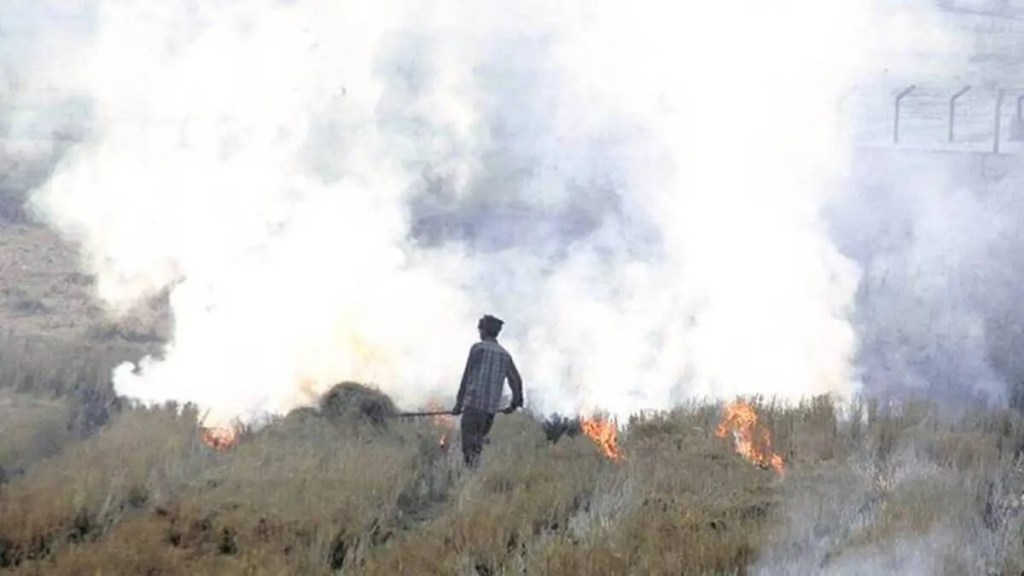While stubble burning contributes the most to the sharp deterioration of the air quality in north India, including the national capital region ahead of and during the winter periods for many years, the state pollution control boards (SPCBs) of Haryana and Punjab, two states which report the highest number of such events, have seen frequent changes at the top.
Since January 2008, Haryana and Punjab have appointed 18 and 10 chairpersons respectively for their SPCBs. Also, a significant number of the SPCB heads were from specialized agencies, who held this crucial post as additional charge without full-time devotion.
According to sources, there has in fact been a number of “temporary appointments” to the helm of SPCBs over the years. Worse, representations from the fields of environment and public heath have been inadequate.
Haryana and Punjab, meanwhile, have reported 86% of the total 50,688 incidents of stubble burning in the current season in northern India.
Air quality in the Delhi/NCR region has been in ‘unhealthy’ range for the last many weeks, with the air quality index mostly oscillating between the “very poor” and “severe” categories and plunging to even the “hazardous” level following the Diwali celebrations.
Also Read: Strong winds sweep across Delhi but air quality still ‘very poor’
Since 2008, only two chairpersons of Haryana’s SPCB had tenures of more than 3 years each while a tenure of a person holding additional charge as the SPCN head was just one week.
While the tenure of chairperson of SPCB in Punjab had been mostly around 2 years, there was an instance of appointment to the board for only a week. “This raises serious concern about the way states approach the issue of pollution control,” a retired government official from Haryana said.
According to a report titled ‘the State of India’s Pollution Control Boards’ by the Centre for Policy Research (CPR) the constitution of the boards largely comprise officials including retired personnel from government departments, public sector units and other industry representatives, while there are limited representations of experts from the field of environment, labour, public health etc. “The statutory requirement of having at least two Board members who have knowledge of and experience in air quality management is not met by most Boards,” the CPR report which covered SPCBs of Punjab, Haryana, Uttarakhand, Uttar Pradesh, Bihar, Jharkhand, Chhattisgarh and West Bengal, has stated. It also noted ‘the Chairperson’s post is not full-time in several Indo Gangetic Plains states. Chairpersons often hold additional charge of other government departments’.
While several cities in north India face high levels of air pollution caused by stubble burning, vehicular pollution, construction and industrial activities, states usually resort to short-term measures such as banning construction activities, restricting the use of diesel vehicles and closing down offices and schools to pacify the public. The role of SPCB in taking long-term measures for curbing air pollution remains largely on paper, a former Punjab government official told FE.
SPCBs were set up under the water (prevention and control of pollution) act, 1974. Over the years the board’s mandate has expanded significantly beyond water-related issues. At present these boards are also responsible for regulating air and noise pollution, managing municipal and hazardous waste management amongst others.
An official of Haryana pollution control board said that the job of the agency is to coordinate with key departments such as agriculture and industry for curbing air and water pollution.
A SPCB official of Haryana, however, said that because of coordinated efforts with the agriculture department through financial incentives and awareness programmes amongst farmers, incidents of stubble burning this year has reduced by 43% to 2880 between September 15 – November 11, 2022 against 5063 reported in the year ago period.
Stubble burning has been an annual event for the last many years as farmers clear fields for sowing wheat especially in Punjab and Haryana as paddy straw is not used as animal fodder.

